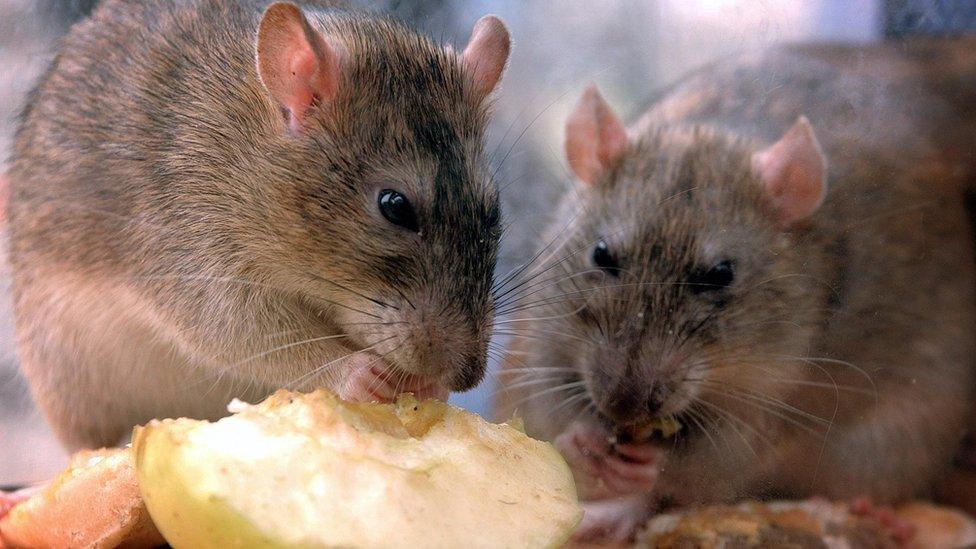Rats: Lockdown 'perfect for unwelcome wildlife'
- Published
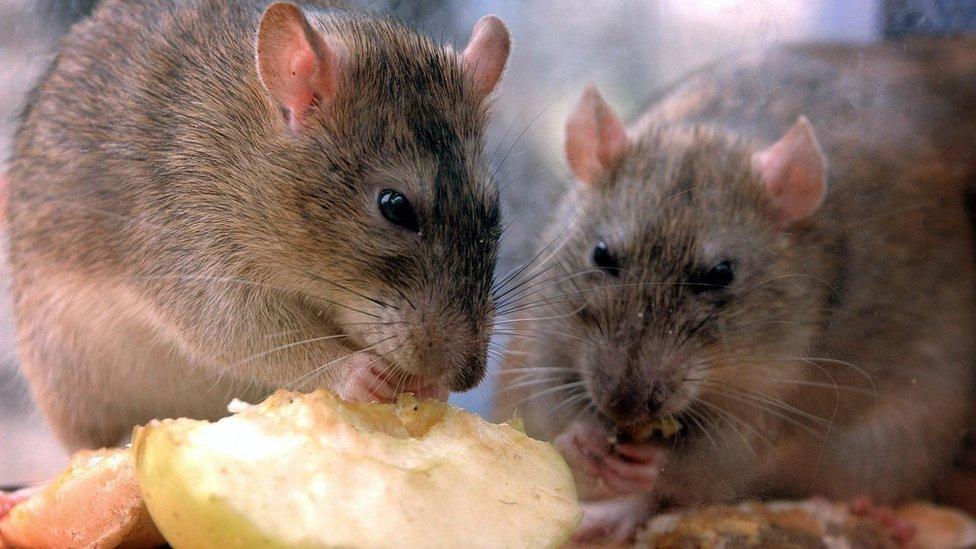
The British Pest Control Association says rats became 'braver and bolder' during lockdown
"Nature is returning" has been a familiar refrain over the weeks and months of lockdown.
With cities and towns less busy, and often deserted, many species rarely seen in urban areas are now in plain sight.
In the UK, conservationists say hedgehogs, stoats, foxes and badgers and deer all increasingly took advantage of fewer humans being about.
But increased sightings of some species were not so welcome - lockdown also saw a surge in rat numbers.
David Greer is a certified field biologist who runs his own pest control business in County Antrim.
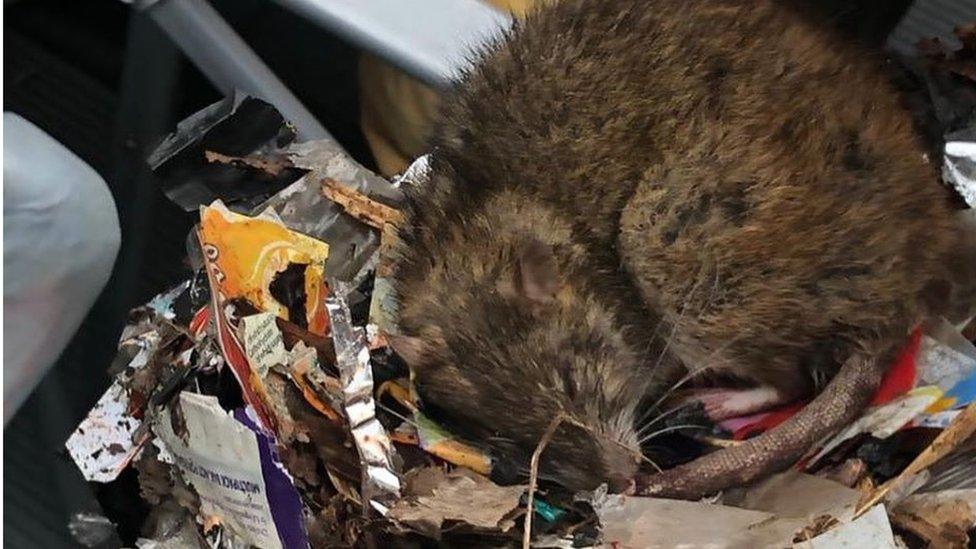
Pest controller David Greer says lockdown provided ideal conditions for rats
More frequent rat sightings on city streets and nearer homes during lockdown is not surprising, he said.
That is because fly tipping, poorer sanitation and less rubbish collection created ideal conditions for rats, made all the better by the lack of people around.
"Simply put, the rats had no one to bother them," said Mr Greer.
Plus with the fine weather leading to frequent barbecuing, the rats had a further reason to explore, he added.
This all added up to a huge increase in his workload.
"Within weeks of lockdown we'd seen a massive surge in call outs," he told BBC News NI.
"By the first few weeks of April we'd seen a 60% increase in work. We've never been busier during the six years of running the business."
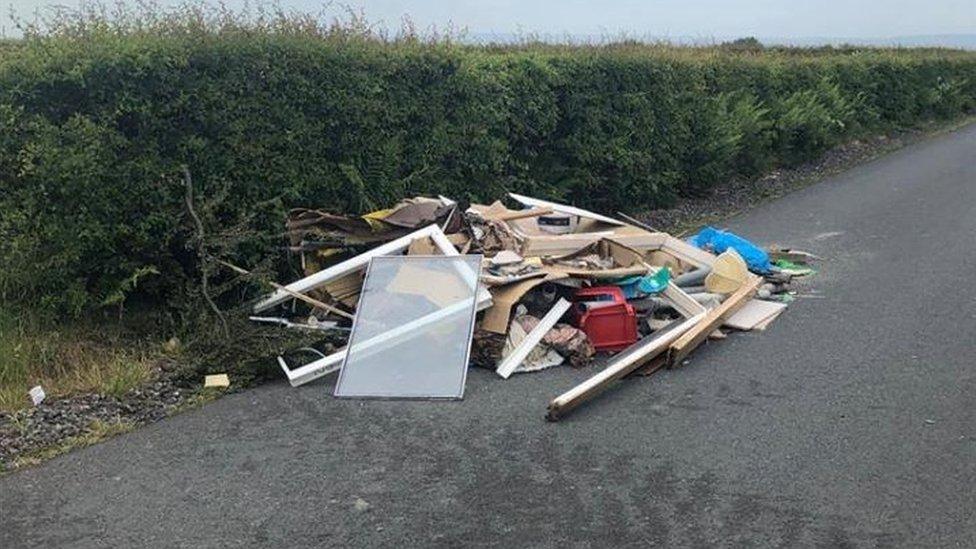
David says a spike in fly tipping was one of the reasons why rats became more visible
On his birthday, he was called out to Belfast's New Lodge where seven neighbours were horrified by the growing rodent numbers in the area.
Sean Rosbotham, one of those residents, said he spotted something scurrying in his back yard after lockdown was introduced.
At first, he thought his "eyes were deceiving him".
"It was that big I thought it was a beaver, you should have seen the size of it," he told BBC News NI.
He told his neighbour and, as they spoke, he realised the rat he saw was not alone.
"He'd seen something, too, we started to realise we might have a problem."
Mr Rosbotham said over the next few days, rat sightings became more and more frequent and the fear they would get into his family's home became more real.
"We were at our wits end, terrified they'd come inside.
"They were running all over the place and, with the council closed, we didn't know where to turn, or how to get help.
"The last thing any of us wanted was to have the rats come inside," he said.
He, too, blamed fly tipping and the lack of rubbish disposal - takeaways and restaurant waste going uncollected was a particular problem, he said.
"Without David, we don't know what we would have done, with the council closed there seemed to be nowhere to turn, there seemed to be nobody to help us."
Bait boxes were laid and within days almost 30 rats were caught.
The British Pest Control Association (BPCA) said rats have been a common lockdown problem right across the UK.
How to keep rats out of homes
According to the BPCA, empty buildings, deserted streets and reduced footfall provide an ideal opportunity for rodents to thrive.
The BPCA said that more than half of their members (51%) reported an increase in rat activity as restrictions were placed on public life.
Natalie Bungay, of the BPCA said rats "became bolder, braver and more innovative in finding food and shelter in the shutdown".
"By nature, rats will also try to avoid humans directly and so, with less of us walking the streets, they may be getting a little bolder and possibly be seen in areas they normally wouldn't."
One way to help rat proof your home is to seal any areas - like cracks and holes near the foundation, or utilities and pipes - where rodents can get inside.
Indoors, make sure there are few places they can hide, and keep areas clear from clutter. Keep food in rodent-proof containers.
- Published16 January 2018
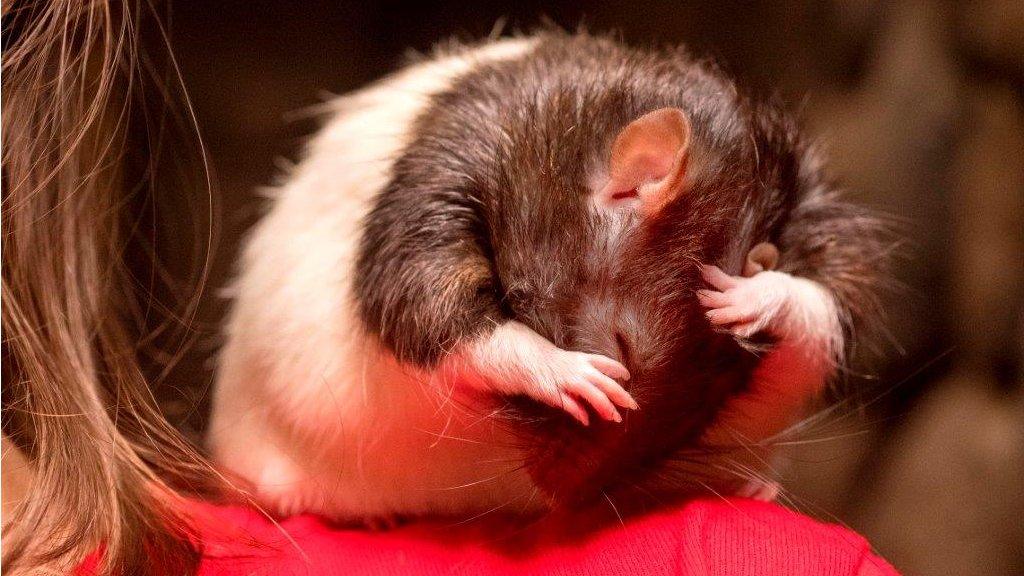
- Published28 September 2016
